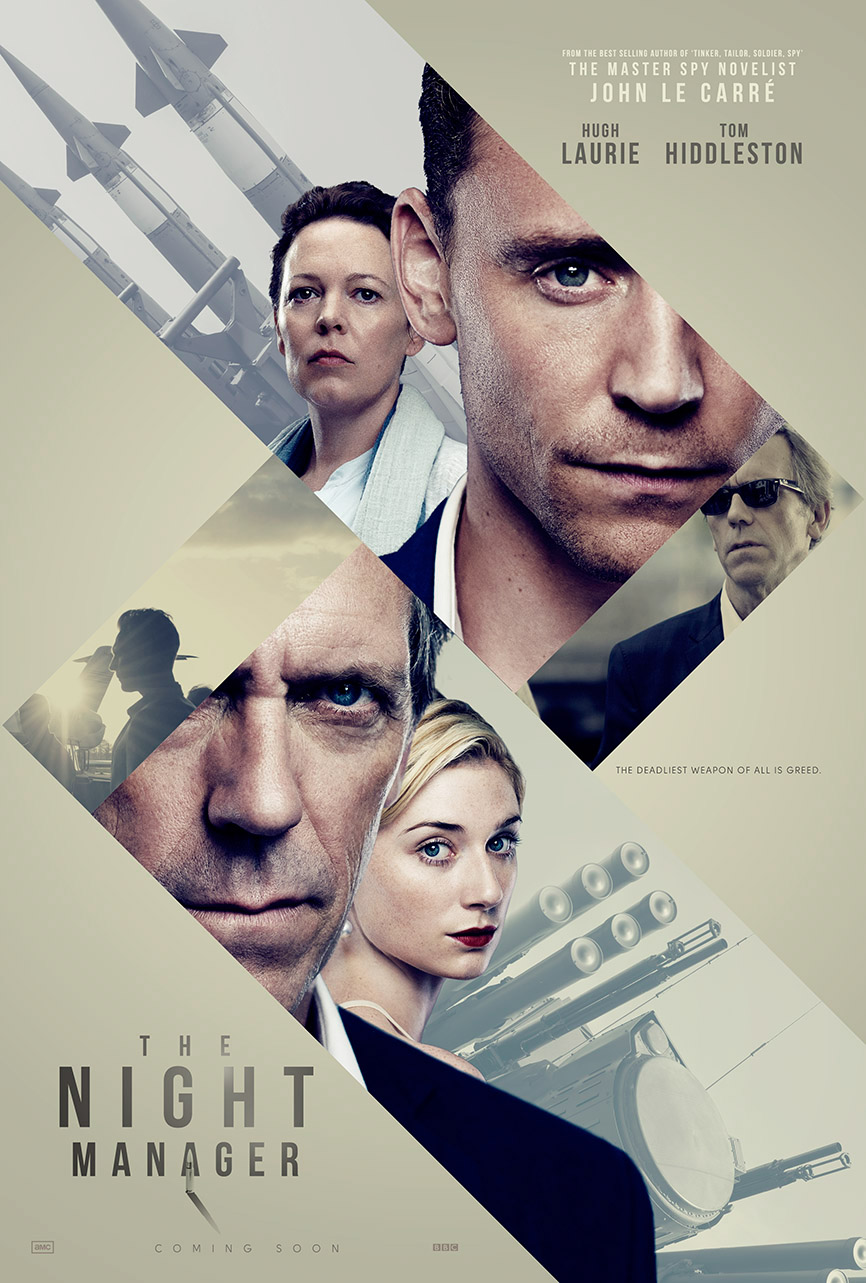
Elizabeth Debicki: ‘We fought about how sexy I should be ’
She stole the show in The Night Manager: now Debicki is taking centre stage
by Tom Lamont
Saturday 8 October 2016 08.00 BST
A
number of competing bars have been built into the outer bulwark of the National Theatre in London, and when she emerges from rehearsals one night in September the Australian actor Elizabeth Debicki – animated, adamant, 6ft 3in – hesitates. Which bar? We circle the building together, scouting options, dismissing one place for being too quiet, another too busy. Debicki has heard a rumour about a secret actors’ drinking den hidden deep within the theatre complex. Finally, we wind up back at the quiet place, where she orders a glass of red wine. “I love that in England the choice is only ever ‘medium’ or ‘large’,” the 26-year-old says, taking a swig. Then again, she adds, who is she to talk. “In Australia, we fill swimming pools with this stuff.”
 |
| Elizabeth Debicki |
Chatting at the bar, I can understand why, whenever Debicki does a job (playing a warlord’s mistress in The Night Manager, opposite Hugh Laurie and Tom Hiddleston, a party girl in Baz Luhrmann’s 2013 adaptation of The Great Gatsby, or an alien in the upcoming superhero sequel, Guardians Of The Galaxy) she is affectionately known as “Debicki” on set. “My first name never lasts longer than five minutes.” There is an unstuffy and clownish energy to this actor, who doesn’t like to let a sentence rest if there’s a quip to be added and who, when she talks, waves her hands about as if she’s drowning. She chews gum and fiddles constantly with her short, bleached hair, now tugging it upright, now flattening it sideways. Her exuberance might be amplified by the fact that she’s only just been let loose from a rehearsal room after nine hours’ work on a new play, but Debicki says she’s always had “an ingrained intensity, a little bit of madness”, and she puts this down to her ancestry: Polish on her father’s side, Irish on her mother’s. When I ask about the most tiring part of rehearsing, Debicki flattens her hair to one side and says, “It’s a David Hare play. The words.”
There’s not a lot more she can say about the production, she says, beyond the fact that it’s called The Red Barn, is set in 1960s New England and co-stars Mark Strong – a “psychological thriller with Hitchcockian elements”. I ask if she can give me a little preview of her New England accent. “No. Noooo. No way.” The hair gets dragged into clown-like puffs. “No.” Debicki has signed a number of non-disclosure agreements recently, she explains, mostly related to her work on Guardians Of The Galaxy, and this has made her paranoid about saying anything about anything. “You start to worry there are snipers on the tops of nearby buildings.”
We talk instead about The Night Manager, safely in the can, safely broadcast, safely praised and garlanded. Overnight, while Debicki was asleep in her rented place in London, many of the cast and crew came together in Los Angeles. The series was up for some big awards at the Emmys, including nominations for her co-stars Hugh Laurie, Olivia Colman and Tom Hiddleston. In the end, the show’s Danish director, Susanne Bier, won.
Debicki woke up to an inbox full of fuzzy photographs of the gang celebrating. “I miss them,” she says. “In my experience as an actor, it was probably the most unified group I’ve ever worked with. It’s rare you come out of a job and everyone you worked with, you want to see them again.”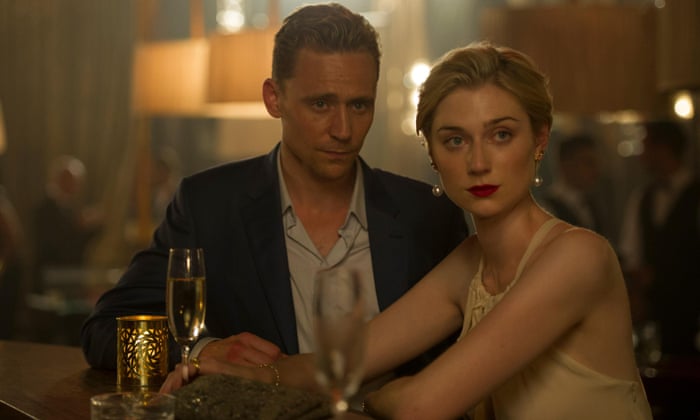 |
With Tom Hiddleston in The Night Manager: ‘I miss them,’ she says of the cast.
Photograph: Des Willie
|
In The Night Manager, adapted from John le Carré’s 1993 novel, Debicki played Jed, a chilly beauty who has been “bought”, in the character’s words, to be the girlfriend of globetrotting arms dealer Richard Roper (Laurie). Jed gets muddled up in her allegiances when a former MI6 officer (Colman) commissions a taciturn spy (Hiddleston) to bundle in and mess with Roper’s schemes. Over its six episodes, there was a good deal of betrayal and sex and murder, as well as a lot of checking in and out of swanky hotels. There were clunky moments (Debicki’s character to Hiddleston’s: “Everyone’s attracted to you: who are you?”), but even so it became that show – the one you’d better watch, as a matter of national imperative, in order not to be left out of conversations the whole time.
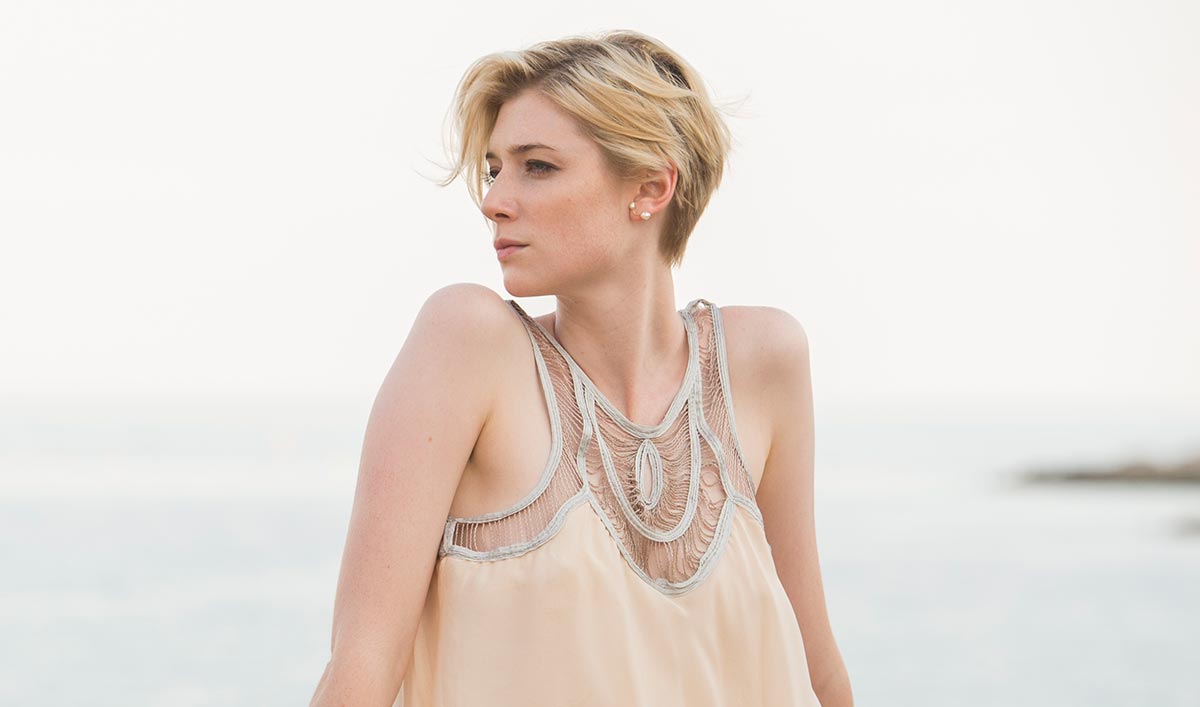 |
| Elizabeth Debicki |
“I love the idea that everyone was sitting down on a couch in front of it on a Sunday,” Debicki says. “That’s old-fashioned entertainment, isn’t it?” Her commutes to and from the theatre have been interesting, post-Night Manager. If she hasn’t showered or done her hair, she says, she’ll generally pass unnoticed. And, sometimes, “there’s a very British thing, where people have a very quiet but still slightly audible argument as to whether I am actually the woman in The Night Manager. It’s usually the husband or boyfriend looking over and saying, ‘No. Not her.’”
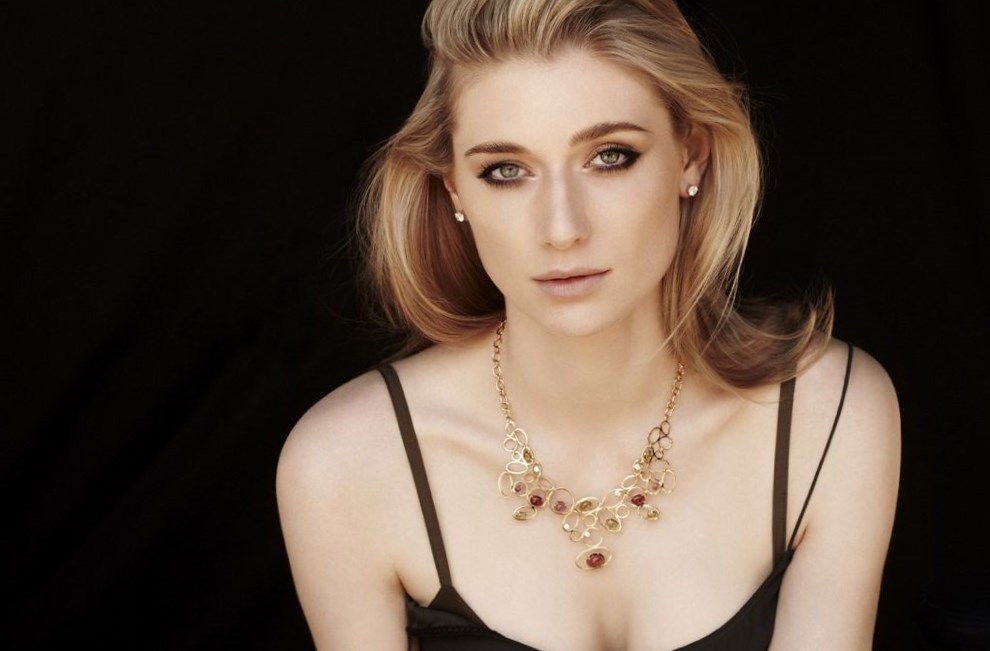 |
| Elizabeth Debicki |
She was delighted that Bier, the first woman Debicki had been directed by, won the Emmy. On the set of The Night Manager, “we used to fight a lot about how sexy Jed had to be”; Debicki thought less, Bier thought more. A shower scene from episode two had to be tried a few times because, as Debicki remembers, “Susanne thought I was drying myself off like a football player in a locker room. She wanted Jed to be, not an object, but very feminine.” Bier helped her to understand the difference.
Most importantly, Debicki says, she responded to Bier’s refusal to praise her just for showing up. “Sometimes you work with directors who are very vocal, very complimentary. And I probably looked to Susanne for that, at first, like a deer in the headlights.” What happened? Debicki does an impersonation of the way the director spoke to her – eyes rolling, Scandinavian accent set to full-stun sarcasm: “You’re wonderful, you’re amazing, you’re the best actress in the world.’” She grimaces and mangles her hair. “It was freeing, to be made terrible fun of. I stopped looking for her approval.”
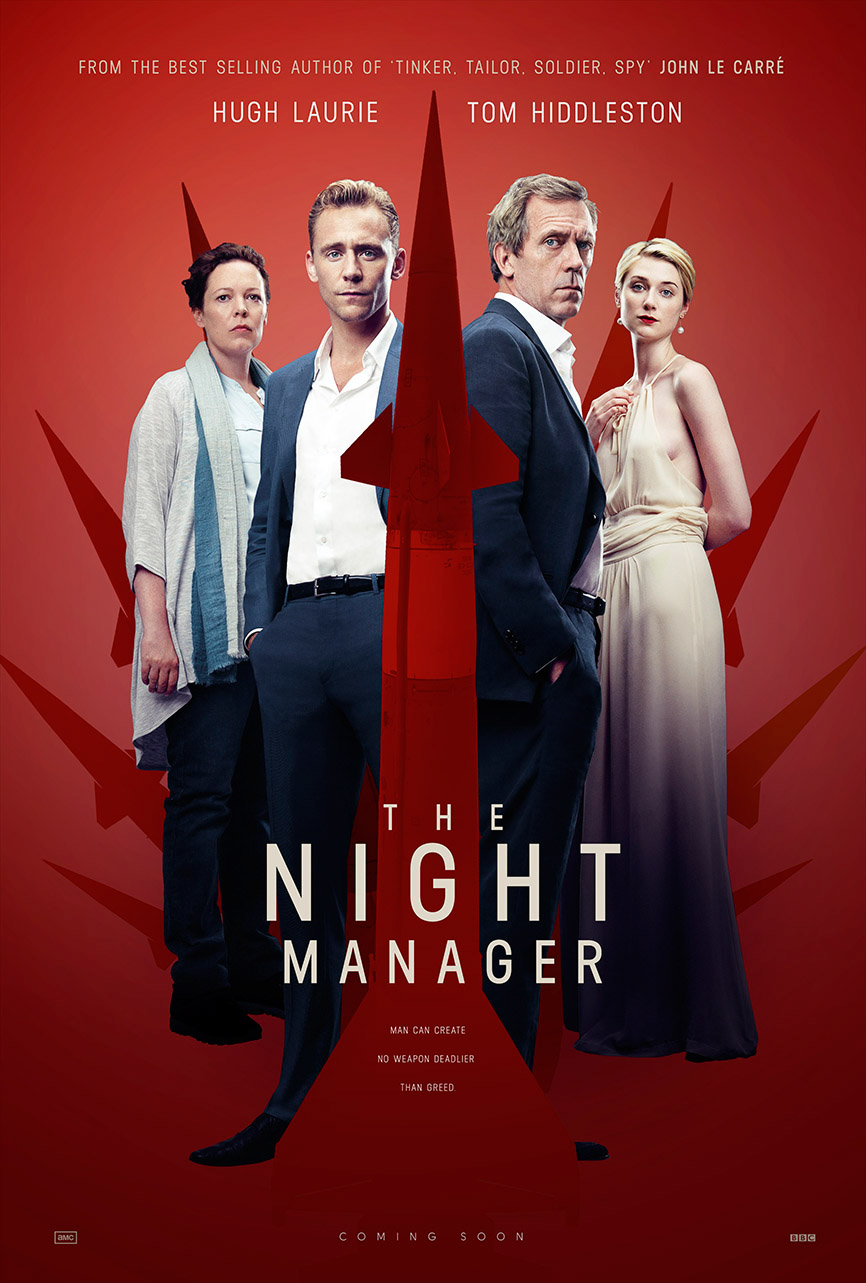
Debicki was born in France, the oldest of three children. Her parents were ballet dancers who met in Paris while performing in a show together. They relocated to the suburbs of Melbourne when Debicki was five. At her new school, “I remember desperately wanting to assimilate. It was probably the beginning of my acting career.” She spoke fluent French. “But kids are sensitive, right? I decided I wanted to fit in and I wouldn’t speak the language any more. My parents were appalled. Can you imagine? You have a little child who’s bilingual and then one day goes, ‘Nope.’”
The family weren’t well off. When her parents’ dancing careers timed out, Debicki’s father took a job working backstage at a theatre. She remembers “it was all a big relief” when she won a scholarship to an otherwise pricey school. Somewhere under Debicki’s quippy top layer there’s something firmer, and I get a sense of this when I ask an incautious question about how she won her scholarship: a recital, a dance? “Sat an exam,” she says, flatly. “I can write, too.” Debicki explains: “When your parents are ballet dancers, they teach you to be really fucking tough.” Physically? “They deal with a lot of physical pain, but no. Dancers are the toughest people I’ve met on a psychological level. It is so much more brutal than acting. Your expiration date is more definite, you work so much harder for your place along that barre or in that chorus line or whatever. My parents – who were very good at what they did, and had a sneaking suspicion early on that they were going to raise at least one child who would turn out to be a thespian – they really instilled a lot of toughness in us.” She remembers being told, often: chin up.
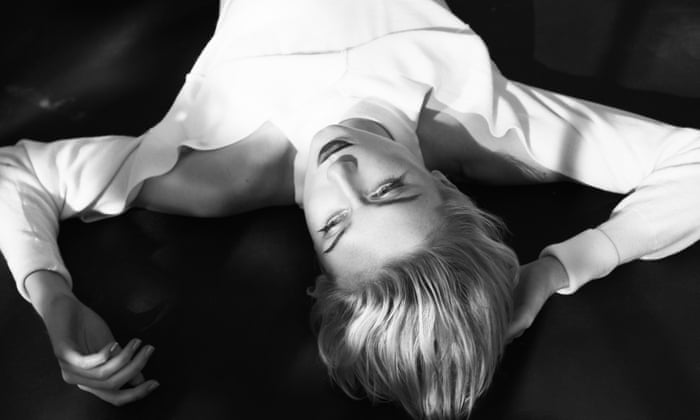 |
Jumper, by Dion Lee, from netaporter.com. Shirt (in main picture), cosstores.com.
Photograph: Gustavo Papaleo for the Guardian
|
The family weren’t well off. When her parents’ dancing careers timed out, Debicki’s father took a job working backstage at a theatre. She remembers “it was all a big relief” when she won a scholarship to an otherwise pricey school. Somewhere under Debicki’s quippy top layer there’s something firmer, and I get a sense of this when I ask an incautious question about how she won her scholarship: a recital, a dance? “Sat an exam,” she says, flatly. “I can write, too.” Debicki explains: “When your parents are ballet dancers, they teach you to be really fucking tough.” Physically? “They deal with a lot of physical pain, but no. Dancers are the toughest people I’ve met on a psychological level. It is so much more brutal than acting. Your expiration date is more definite, you work so much harder for your place along that barre or in that chorus line or whatever. My parents – who were very good at what they did, and had a sneaking suspicion early on that they were going to raise at least one child who would turn out to be a thespian – they really instilled a lot of toughness in us.” She remembers being told, often: chin up.
But she ever so slightly broke their hearts, Debicki says, when at the age of 17 she got into law school (“They were overjoyed”) and chose instead to take up a place to study drama. At the University of Melbourne, Debicki’s training was almost exclusively theatrical. “We had one week of film and TV classes. I remember having to hold up fake bottles and say: ‘Buy this Coke!’ I never expected to work on screen.” Her first job as a graduate was on the stage, playing a bereaved mother in a drama with the Melbourne Theatre Company: “I had to cry a lot.”
 |
| Elizabeth Debicki and Tom Hiddleston |
This was an odd time in her life. Just as the weepy play was about to start rehearsing, Debicki went to a screen test in a Melbourne hotel, where an agent was assembling tapes of unknown Australian actors for Baz Luhrmann’s perusal, on the off-chance the director might want them in his new adaptation of The Great Gatsby. Debicki’s tape caught Luhrmann’s eye. “I got an email that said, ‘Baz liked your test.’ It was incomprehensible.” She was flown to Los Angeles, a 36-hour trip, where she did another test. Back in Melbourne, she didn’t hear anything for a month. “I started to assume I’d been hit by a bus and dreamed the whole thing.” Then she was walking to rehearsals one day when Luhrmann called her mobile and said, “Would you like to be part of our little play?”
In Gatsby, which was filmed in Sydney in late 2011, Debicki played Jordan Baker, a glamorous society cynic, vaguely catalytic in the doomed affair between Leonardo DiCaprio’s Jay Gatsby and Carey Mulligan’s Daisy Buchanan. Of her state of mind during the shoot, Debicki says, “I had just finished school. I felt about 12 years old.” She was good in the movie, though: lofty, composed, holding her own as the notably unfamous one in a cast composed of established or rising stars. Debicki knows that Luhrmann (“my fairy godmother”) took a chance on her. “He casts on instinct. And I guess with this he decided, ‘I have big actors in it already.’”
She was working in another play by the time Gatsby premiered at Cannes in 2013. The Maids, starring Cate Blanchett and Isabelle Huppert, had Debicki as a wealthy woman who visits her frustrations on her servants. After a run in Melbourne, the play transferred to Broadway, where Debicki was singled out for praise (the New York Times called her “smashing”; Time magazine found her “tall and delicious”). Between the Melbourne and Broadway runs, Guy Ritchie cast her as a baddie in his Man From UNCLE movie, and Justin Kurzel, who’d seen The Maids, made Debicki his Lady Macduff in a big-screen Macbeth with Michael Fassbender. By the time these films were on release, Debicki had already lobby-hopped through posh hotels in Switzerland, Marrakech and Mallorca, filming The Night Manager.
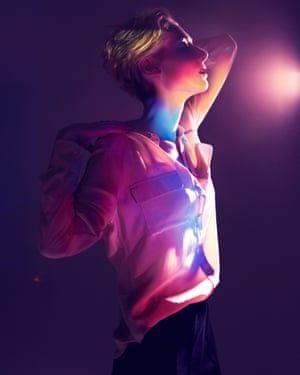 |
| Silk shirt, by Equipment, from netaporter.com. Photograph: Gustavo Papaleo for the Guardian |
Which brings us to what might be called her non-disclosure period. After the David Hare thriller at the National, Debicki will appear in a mysterious space drama called The God Particle, playing an astronaut, and then in the Guardians Of The Galaxy sequel, playing a “fabulous” alien about whom she can say very little. I ask her to give me something about the Marvel Studios film – anything – and she says there was lots of green-screen work. Anything else? She leans forward and seizes my knee: “There is probably someone from Marvel – wearing a tweed cap – pretending to be an audience member at the National – spying on me right now.”
She adopts a roughly similar policy of banterish deflection when prodded, mildly, to talk about her romantic life. “Have I got a boyfriend-slash-girlfriend? That’s very liberal of you. I don’t want to say anything. I’m really private.” What she will say is that it can be unnerving, hopping from job to job, rental to rental, and that she’s glad her parents trained her in the tradition of iron, ballet-dancer toughness. “As an actor, you’re nomadic. You never settle. And that can be very trying on the sense of self, when who you feel you are shifts all the time. It drove me nuts as a kid, all that ‘Chin up’ stuff, but now I’m grateful for it.”
The quiet bar at the National gets busier (an evening show is about to start) so we step outside, where Debicki registers mild surprise that she managed to finish her big glass of wine after all, and slings on a backpack to head home. On the set of The Night Manager, she’s reminded, Hiddleston used to quiz her about the meaning of Australian slang words such as “dag” and “daggy”; she points a thumb at her backpack, a cumbersome, canvas thing: “This is daggy.”
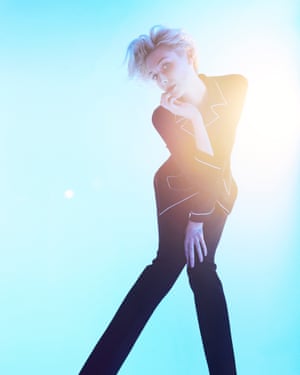 |
The quiet bar at the National gets busier (an evening show is about to start) so we step outside, where Debicki registers mild surprise that she managed to finish her big glass of wine after all, and slings on a backpack to head home. On the set of The Night Manager, she’s reminded, Hiddleston used to quiz her about the meaning of Australian slang words such as “dag” and “daggy”; she points a thumb at her backpack, a cumbersome, canvas thing: “This is daggy.”
We set off together, heading for the same station. Like Debicki, I’m tall (I have a couple of inches on her 6ft 3in) and we probably make a bit of a sight, striding along the river. Oncomers take a good look, then look away. I know from experience that it’s hard, if not impossible, to engage someone in interesting conversation about being tall, though every day people try. I’m not eager to bring up the subject unless she does.
“I can’t remember the last time I met someone who was taller than me,” she says.
We compare notes. Has she had that one where an old lady in the supermarket asks for something off the top shelf? (Yes.) The one where an overwhelmed young child bursts out crying, spontaneously, at the sight of her? (Not yet.) Debicki says she’s come to think her height might be the source of some of her unusual energy. “People often say I seem very confident. If I have to present an award, or it’s the first day of work somewhere, I have this veneer of being totally au fait. I wonder if it’s from having been different from a young age. I was always aware that people were aware of me. Maybe I tried to overcompensate.”
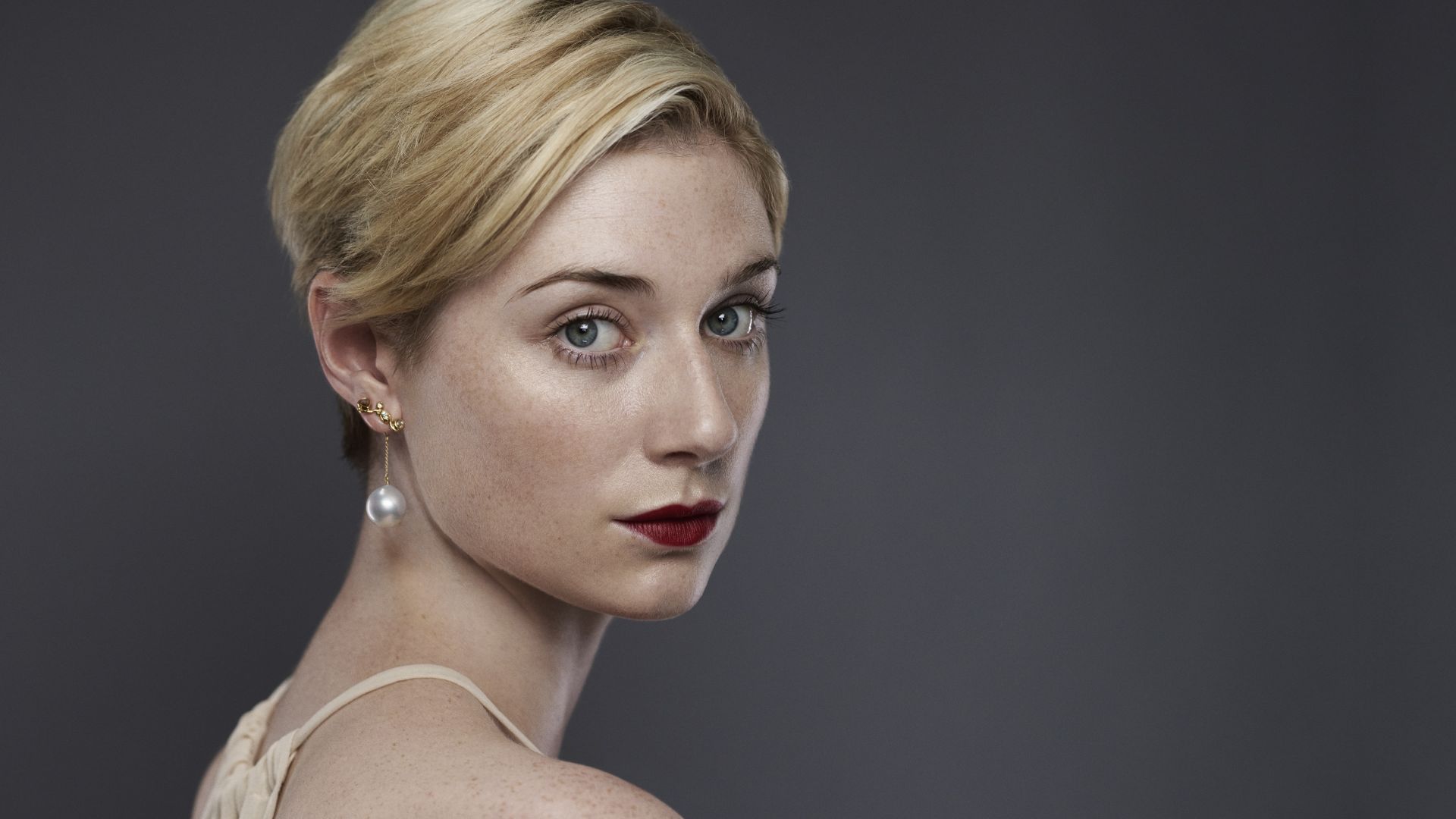 |
| Elizabeth Debicki |
She’s too sarky and self-aware not to point out, while saying this, that nobody is about to start “playing the violin” for a “tall-y”. And she can hardly blame strangers for being attentive to physical distinction, because “rare’s rare, you know?” Even so, height is something you don’t get any choice about and can’t switch off; it’s a strange and unrepresentative thing to be defined by. So don’t make the whole article about me being tall, Debicki suggests, before we shake hands goodbye. I tell her I’ll put it in somewhere at the end.
• The Red Barn is at the Lyttelton Theatre, London SE1, until 17 January
• Styling: Melanie Wilkinson. Hair: Ben Talbott at the Galleon east Dulwich, using Charles Worthington. Makeup: Emma Day at the Wall Group, Using Dior Fall Look and Capture Totale Dreamskin Cushion. Fashion assistant: Billie Brand



No comments:
Post a Comment